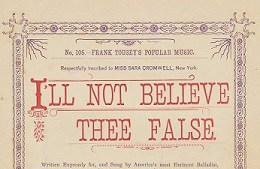You may have received a copy of the ARDC’s Annual Report in your inbox recently, or perhaps you saw the summary that the ARDC also published. Both highlighted several aspects of the ARDC’s operation, including statistical information about the number and kind of investigations and prosecutions the agency has initiated. What can we learn from the raw numbers about what lawyers face when their conduct is questioned?
The ARDC’s investigative and prosecutorial functions are carried out by its attorneys, investigators, and staff, supervised by the Administrator of the ARDC (collectively referred to as “the Administrator”). One statistic about the Administrator’s investigation and prosecution of disciplinary allegations that stands out:
- 5,648 requests for investigation received
- 675 requests for investigation that alleged “fraudulent or
deceptive activity, including misrepresentation to a tribunal, clients and
non-clients” - 81 formal disciplinary proceedings filed
- 62 formal disciplinary proceedings charging the respondent
with dishonest conduct
That means that only 11.95% of investigations the Administrator receives contain a complaint that the lawyer has engaged in some kind of dishonest conduct; but 77% of the formal cases the Administrator files against lawyers allege that the lawyer engaged in dishonest conduct.
Requests for investigation that incorporate some kind of allegation of dishonest conduct can come in many forms. Sometimes they precisely refer to conduct that is alleged to have been intentionally dishonest, with direct or circumstantial evidence in support of the allegation. Other times they amount to little more than a disingenuous characterization of a lawyer’s mistake or error as dishonest. The Administrator, not wrongly, would categorize both as involving “dishonest conduct” for statistical purposes, even though the former appears clearly better grounded than the latter. (And yet, trust me, the latter kind of complaint exists, and I guess it always will.) It’s only the better-grounded complaints, supported by clear and convincing evidence, that should form the basis for formal disciplinary charges against the lawyer. You would not see a formal complaint against a lawyer alleging that the lawyer acted dishonestly by telling a client that a court hearing was on a Tuesday, when in fact it was on a Wednesday.
But if it’s true that not all complaints about lawyers’ dishonesty become formal charges against the lawyer, then how can we understand the statistical disparity above? And what can lawyers do to mitigate their risks in this environment?
Any report to the Administrator regarding a lawyer’s conduct involves some level of risk for the lawyer. Usually, the risk is small, as so many inquiries are closed without any disciplinary action. But with such a high number of formal complaints involving dishonesty being filed, there may be a risk of being further investigated or prosecuted for dishonest conduct, even if the original request for investigation did not characterize the lawyer’s conduct as dishonest.
The Illinois Supreme Court has held that “[t]here is essentially no way to define every act or form of conduct that would be considered [to involve dishonesty, fraud, deceit, or misrepresentation]. Each case is unique and the circumstances surrounding the respondent’s conduct must be taken into consideration.” In re Cutright, 233 Ill.2d 474 (2009). The Court has also issued opinions following Cutright that bear on its
evaluation of allegations of dishonesty in important ways, and I’ll discuss those cases in future posts.
The point for now, though, is this: lawyers should be mindful of the Administrator’s approach to dishonesty allegations and charges as they respond to inquiries regarding their conduct. Of course, the best policy is always to be truthful and honest in the practice of law, and in response to any disciplinary inquiry. But the statistics suggest that even lawyers who follow that policy may face a suggestion that they haven’t, that
their conduct can be judged to be dishonest even when the affected parties aren’t contemplating that. The task in responding to disciplinary inquiries, then, should now include a readiness to explain how the lawyer’s conduct was honest, or motivated by honest intentions. That could help prevent lawyers from being blindsided by an unforeseen accusation of dishonesty.
*Image from The New York Public Library public domain archive

